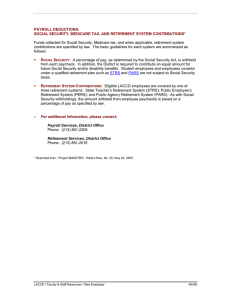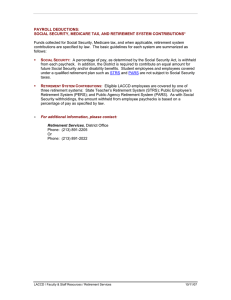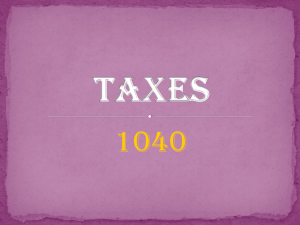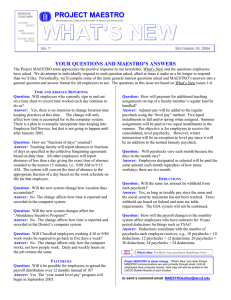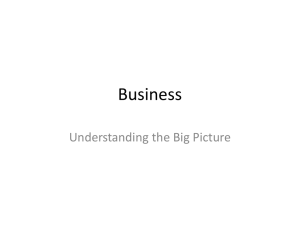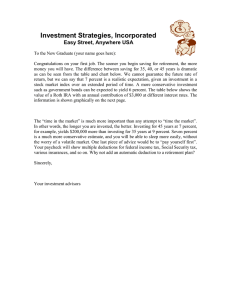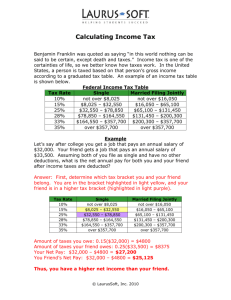WHAT’S NEW P R O
advertisement
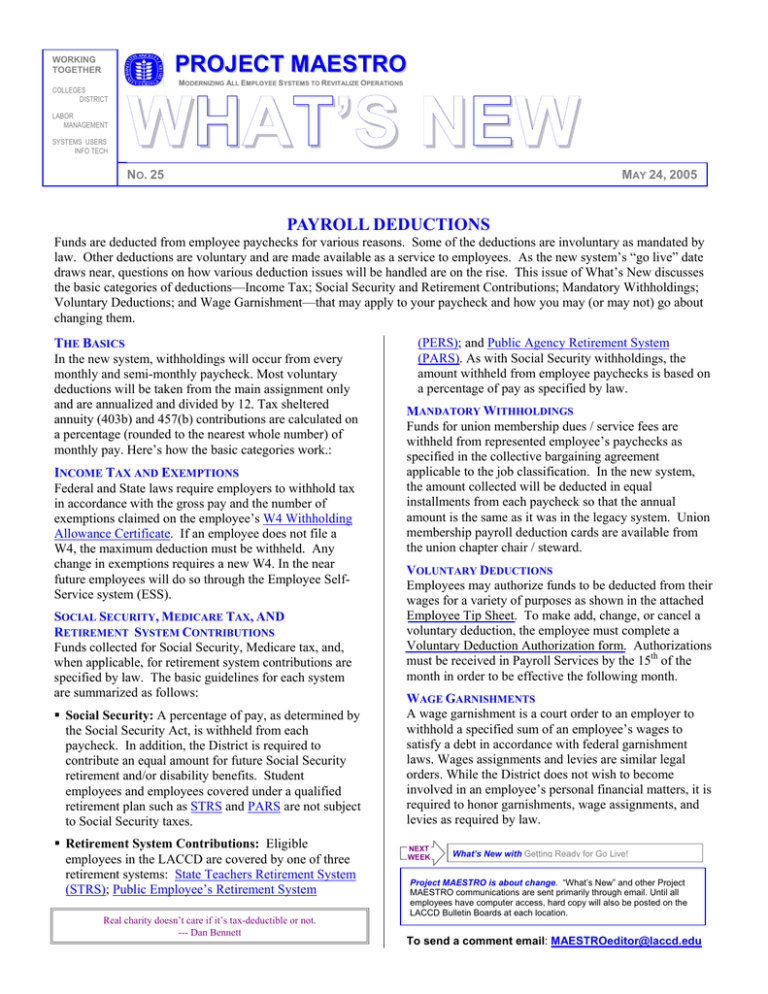
PROJECT MAESTRO WORKING TOGETHER COLLEGES DISTRICT LABOR MANAGEMENT SYSTEMS USERS INFO TECH MODERNIZING ALL EMPLOYEE SYSTEMS TO REVITALIZE OPERATIONS WHAT’S NEW NO. 25 MAY 24, 2005 PAYROLL DEDUCTIONS Funds are deducted from employee paychecks for various reasons. Some of the deductions are involuntary as mandated by law. Other deductions are voluntary and are made available as a service to employees. As the new system’s “go live” date draws near, questions on how various deduction issues will be handled are on the rise. This issue of What’s New discusses the basic categories of deductions—Income Tax; Social Security and Retirement Contributions; Mandatory Withholdings; Voluntary Deductions; and Wage Garnishment—that may apply to your paycheck and how you may (or may not) go about changing them. THE BASICS In the new system, withholdings will occur from every monthly and semi-monthly paycheck. Most voluntary deductions will be taken from the main assignment only and are annualized and divided by 12. Tax sheltered annuity (403b) and 457(b) contributions are calculated on a percentage (rounded to the nearest whole number) of monthly pay. Here’s how the basic categories work.: INCOME TAX AND EXEMPTIONS Federal and State laws require employers to withhold tax in accordance with the gross pay and the number of exemptions claimed on the employee’s W4 Withholding Allowance Certificate. If an employee does not file a W4, the maximum deduction must be withheld. Any change in exemptions requires a new W4. In the near future employees will do so through the Employee SelfService system (ESS). SOCIAL SECURITY, MEDICARE TAX, AND RETIREMENT SYSTEM CONTRIBUTIONS Funds collected for Social Security, Medicare tax, and, when applicable, for retirement system contributions are specified by law. The basic guidelines for each system are summarized as follows: Social Security: A percentage of pay, as determined by the Social Security Act, is withheld from each paycheck. In addition, the District is required to contribute an equal amount for future Social Security retirement and/or disability benefits. Student employees and employees covered under a qualified retirement plan such as STRS and PARS are not subject to Social Security taxes. Retirement System Contributions: Eligible employees in the LACCD are covered by one of three retirement systems: State Teachers Retirement System (STRS); Public Employee’s Retirement System Real charity doesn’t care if it’s tax-deductible or not. --- Dan Bennett (PERS); and Public Agency Retirement System (PARS). As with Social Security withholdings, the amount withheld from employee paychecks is based on a percentage of pay as specified by law. MANDATORY WITHHOLDINGS Funds for union membership dues / service fees are withheld from represented employee’s paychecks as specified in the collective bargaining agreement applicable to the job classification. In the new system, the amount collected will be deducted in equal installments from each paycheck so that the annual amount is the same as it was in the legacy system. Union membership payroll deduction cards are available from the union chapter chair / steward. VOLUNTARY DEDUCTIONS Employees may authorize funds to be deducted from their wages for a variety of purposes as shown in the attached Employee Tip Sheet. To make add, change, or cancel a voluntary deduction, the employee must complete a Voluntary Deduction Authorization form. Authorizations must be received in Payroll Services by the 15th of the month in order to be effective the following month. WAGE GARNISHMENTS A wage garnishment is a court order to an employer to withhold a specified sum of an employee’s wages to satisfy a debt in accordance with federal garnishment laws. Wages assignments and levies are similar legal orders. While the District does not wish to become involved in an employee’s personal financial matters, it is required to honor garnishments, wage assignments, and levies as required by law. NEXT WEEK What’s New with Getting Ready for Go Live! Project MAESTRO is about change. “What’s New” and other Project MAESTRO communications are sent primarily through email. Until all employees have computer access, hard copy will also be posted on the LACCD Bulletin Boards at each location. To send a comment email: MAESTROeditor@laccd.edu
